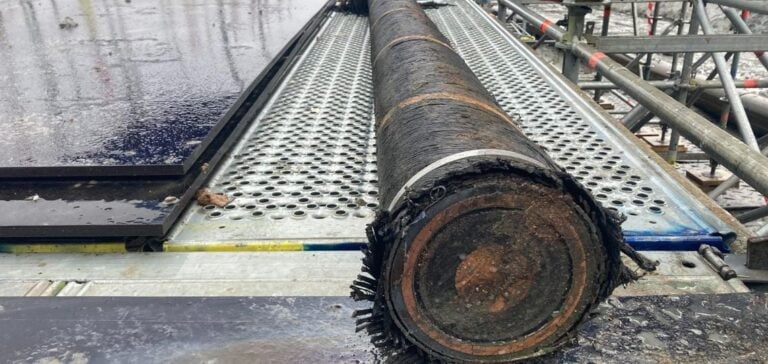Finnish authorities have launched an investigation into a suspected sabotage that damaged the EstLink 2 submarine cable, connecting Finland to Estonia. This cable, essential for transmitting electricity between the two countries, was disconnected on Christmas Day. Although electricity supply in Finland was not affected, the incident is being treated as a severe act threatening energy security.
A suspect tanker, the *Eagle S*, flying the Cook Islands flag, was intercepted by a Finnish patrol vessel off Porkkala, 30 kilometers from Helsinki. According to Sami Rakshit, Director General of Finnish Customs, the vessel was carrying unleaded gasoline loaded at a Russian port. Finnish coastguards, supported by military helicopters, acted swiftly to question the crew and collect evidence.
Suspicions of Sabotage
Preliminary investigations revealed that the ship’s anchors were missing, raising suspicions that they might have caused damage to the submarine cable. “Our patrol visually confirmed this anomaly, which justifies our suspicions,” said Markku Hassinen, spokesperson for the Finnish Border Guards. The National Bureau of Investigation has launched a probe for “aggravated sabotage.”
This type of incident is not unprecedented in the region. In November 2023, a gas pipeline connecting Finland and Estonia was damaged, with authorities concluding that a Hong Kong-flagged container ship, the *NewNew Polar Bear*, was responsible for the damage.
EU Responds to Threats
The European Commission and Kaja Kallas, the EU’s foreign policy chief, have expressed their support for the ongoing investigation. In a joint statement, they condemned “the deliberate destruction of Europe’s critical infrastructure.”
They also pointed to the Russian “ghost fleet,” referring to ships used to illegally transport crude oil or petroleum products, circumventing European embargoes. “We will propose new sanctions targeting these ships, which threaten both security and the environment while financing Russia’s war budget,” the Commission stated.
Strengthened Security in the Baltic Sea
The Baltic Sea has become a highly strategic and closely monitored area since Russia’s invasion of Ukraine in 2022. Incidents targeting submarine cables and pipelines have multiplied, demonstrating what many experts describe as “hybrid warfare” tactics.
In response to these threats, the European Union has intensified its efforts to protect critical infrastructure. This includes improving detection technologies, enhancing underwater repair capabilities, and fostering greater cooperation among member states.
The foreign ministers of Finland and Estonia also agreed on bilateral coordination to prevent future sabotage. Margus Tsahkna, Estonia’s Minister of Foreign Affairs, stated: “These repeated damages cannot be classified as accidents. Dragging an anchor on a seabed where critical cables are located is an intentional act.”
A Firm Message to Moscow
In a press conference, Finnish Prime Minister Petteri Orpo emphasized the need for a firm response: “Incidents targeting our critical infrastructure are unacceptable. Our swift intervention sends a clear signal: we will protect our waters and resources.”
The *Eagle S* remains detained in a Finnish port as the investigation continues to determine its exact responsibilities. Meanwhile, the European Union is preparing new sanctions against the Russian ghost fleet, aiming to deter future hostile actions.






















